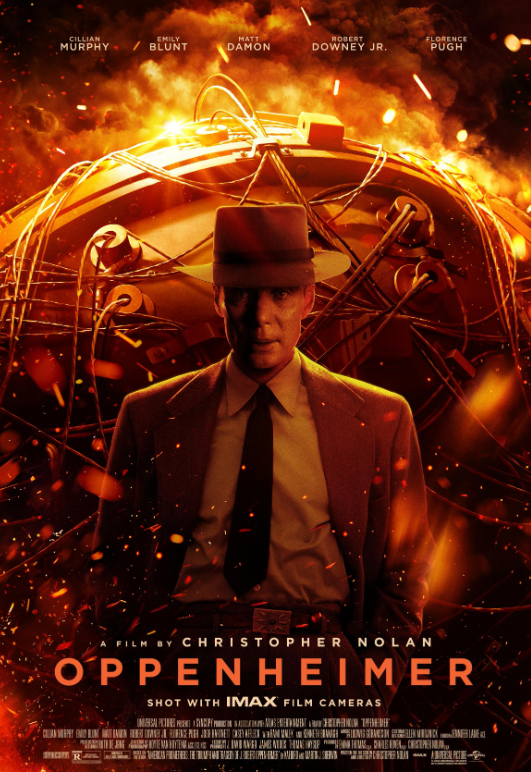Let’s talk about a film. The story is not terribly complicated. It concerns two races. A lunatic steals the resources of a group of people for power and financial gain and his civilization comes to live off the abused.
One man, closely linked to the abusers, finds himself made into an unwilling mediator between the two groups and unexpectedly falls in love with a beautiful woman he meets from the factory. It builds to a satisfying conclusion that destroys a lot of very expensive sets in explosions and ends with, more-or-less, a happy ending. Wrap it all up with references to antiquity and the Bible. The film is a massive critical and commercial success and will be remembered forever.
No, I’m not talking about “Avatar”. I’m talking about Fritz Lang’s “Metropolis,” the film without which no modern science-fiction film could be made or even conceived. Lang literally invented the genre that has given us “Star Wars” and “Blade Runner,” and he did it way back in 1927 Germany with a great deal of money, a singular and almost inconceivable vision and all the special effects he could invent. Over 80 years later, we’re still talking about it and still marveling at it.
It’s the story of an urban dystopia in the distant future. Joh Fredersen, the city’s dictatorial leader and the wealthy enjoy a life of excess and privilege, living amid skyscrapers, passenger planes that fly level with the seemingly weightless elevated highways and exclusive rooftop Edens’ filled with beautiful maidens for personal entertainment.
Underneath this paradise is the city of the workers, a labor camp at which thousands, who never see the sun, slave day and night at monstrous machines to keep the city running. Your wildest imagination could not possibly describe the sets that were built for these locations. Freder Fredersen, the leader’s son, discovers the truth about the city and decides to trade lives with one of the workers. While below, he meets Maria, the beautiful Messiah, preaching to the workers and advocating for mediation with “our brothers from above.” Freder takes up her cause and a maddening, psychotic sci-fi drama unfolds.
The entire second half of this film is chock full of revelation, action and drama, the likes of which cannot be matched by modern science fiction films. I won’t say this hasn’t been attempted with some great vision in the past 40 years by great filmmakers, but not even landmarks like “Star Wars” can compete
“Metropolis”, however, is a singular example in film history. Nothing of its scope had ever been attempted and nothing from its time matches it in terms of ambition, innovation or, for that matter, finances. Weimar cinema turned out many Expressionist masterpieces, but most of the films, directed by greats like Murnau and Pabst were made on fairly standard budgets. The non-realist sets, melodramatic performances and exaggerated light and shadow of films like Lang’s “Die Nibelungen” or Murnau’s “Faust” were the era’s greatest additions and led to the creation of entire schools of film theory. With “Metropolis,” Lang managed to mix the vast innovations of Expressionism with the epic scope of D.W. Griffith. “Metropolis” has a complicated history. The complete version was screened only once, at the Berlin premiere in 1927. Too long for commercial theaters of the era, the film was hacked to pieces and by the time it had made its way to America the next year, the film had become disjointed, illogical and important scenes were replaced with interfiles.
The original premiere version was lost and it was believed that a quarter of the film would be gone forever, ranking the film with only the lose complete cuts of Erich von Stroheim’s “Greed” and Orson Welles’s “The Magnificent Ambersons” as the most-searched-for incomplete films. The cut version continued to be screened, gaining a tremendous reputation and inspiring filmmakers around the world for decades. Now, for the first time since its premiere, the complete version is being released throughout the country, thanks to archivers in Buenos Aires, of all places, who discovered a complete version in fair condition. Like “Metropolis” itself, the find is an unprecedented miracle.
Austin Dale can be reached at [email protected].








Sonja • Sep 28, 2010 at 2:09 pm
Love this article. Very well written 🙂
Austin • Sep 23, 2010 at 2:29 pm
The film uses the term “race” more than once to describe the groups.
Bette • Sep 23, 2010 at 1:03 am
Interesting that you describe the divide in the populace depicted in “Metropolis” in terms of race. There is no indication of this in the film. The conflict is between socio-economic classes, as would have been more relevant in Germany in the 1920s.